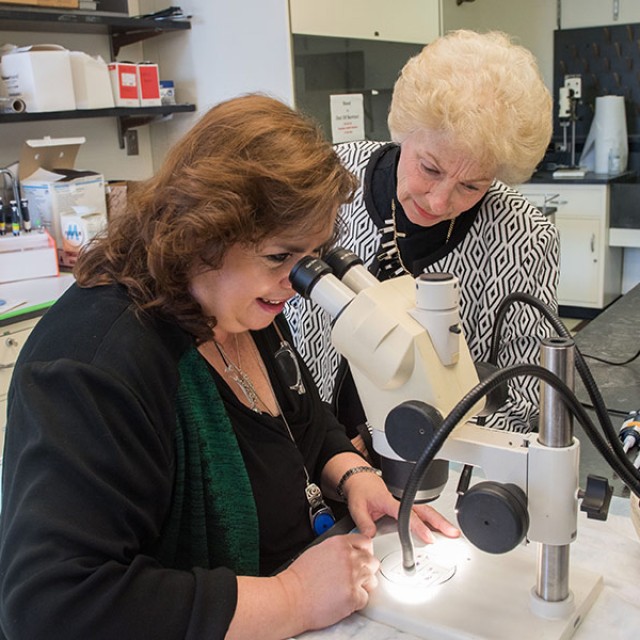The Center’s longstanding Program Project is titled “The Biological Basis of Mental Retardation” (Nancy Schwartz, PhD, Principal Investigator). Its goal is to define the principles governing normal nervous system developmental processes that may lead to brain dysfunction and mental retardation. The Center’s research under the general rubric of mental retardation and developmental disabilities currently focus mainly on studies of mechanisms of neurodegeneration which affect brain development and function, skeletal dysplasias which affect growth and maturation, and signaling pathways which affect migration and differentiation, which are funded by R01s to Dr. Dawson and Dr. Schwartz. In addition, Dr. Dawson has a long-standing interest in Batten’s Disease and is funded by the Batten Foundation. The overall research grant support is awarded mostly by NIH and this year’s grants total well over $1,000,000 in direct costs.
The Kennedy Center provides rigorous training to young researchers, clinicians and students through a variety of programs and tailors research programs based on the interest of the individual researcher. Dr. Schwartz is Director of the MD/PhD Growth, Development and Disabilities Training Program (GDDTP) , the Post-baccalaureate Research Education Program (PREP), the NRMN-CAN National Research Mentoring Network Program, and the Initiative for Maximizing Student Development (IMSD) graduate program. The GDDTP offers basic science training for investigation in a broad range of disciplines by supporting students in a joint MD/PhD program and has successfully been pursued for the past 40 years. The PREP is an opportunity for underrepresented minorities who hold a recent bachelor’s degree in science to work as laboratory technicians for one year at the University of Chicago, while participating in academic activities designed to help them prepare for successful application to an advanced degree program. The IMSD promotes diversity in science by providing research training, mentoring and educational opportunities for new graduate students from groups defined by NIH as persons who would benefit from academic and professional enhancements before and during their progression through PhD programs to completion. NRMN-CAN provides professional development, grant-writing, and mentor training to Early Stage Investigators from underrepresented populations in the biomedical workforce and assists mentors in developing core competencies for mentor facilitating and grant-writing coaching. All of these educational programs are funded by the NIH.

